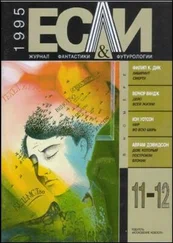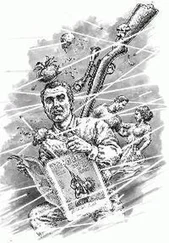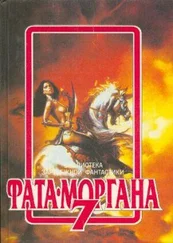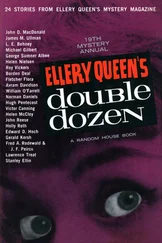Strapping the sword about his waist—the inconvenient sword that was almost as much a nuisance as the young Chinese pothecary was, for he was obligated to wear it will-he, nill-he wherever he went these days, his badge of office, the sword with no name—Vergil set out to find the Black Man.
It was on the face of it no easy task to find a single man among the swarming millions of Rome. Yet even in eternal and eternally jaded Rome a man seven feet tall, darker than any Aetheopian, and unblinking—such a man is noticed. And, for a copper or two, remembered.
The trail of small coinage led Vergil first to a poor neighborhood, and then to a yet-poorer tenement house. Three cabbage-smelling flights up, there was a door. He hammered on its frame. A silence. The creak of feet on old floorboards. The door opened.
Skin black as obsidian. Eyes unblinking as a snake’s. “I am in the presence of an inferior,” he said to the air. “But how inferior is he? Does he have such standing among his barbarous upstart race as to allow him admittance to my domicile without shame to me?”
Seeing his bearing, the palpable hauteur that hung about the man, the sneer that had not been achieved in less than thirty generations, Vergil knew the man for Aristocracy in his own land. Nor New Aristocracy, nor Old Aristocracy either. Old, Old Aristocracy. Older than the founding of Rome. Older than the rise of the Greeks or the Abyssinians before them. Older, perhaps, than the Flood.
Old.
Suppressing a quite inappropriate urge to bow, Vergil drew himself up and called upon his titles. “I hight Vergil Marius Mago, Bail to the Vicus of Ravenna, Captain of the Communality, Ser Messenger to the Doge of Naples and to the Vicar Imperial of the South, Co-Keeper of the Golden Clicket to the Golden Lock, Titular Count of Calabria, Titular Prince of Palermo, High Baron of High Barbary, Min Dan in Danland, Roman Knight and Patrician of the Romans, Magister of the Mountains with Ambulatory Jurisdiction…” Suchlike worldly tokens did not Vergil himself impress; nor, he saw, was the Black Man moved by them as well. Feeling absurdly like a small child reciting his accomplishments before a visiting adult dignitary, he cut short the list of his civic (for he did not of course mention any of the ranks he held in The Order of Sages and Mages; such were forbidden) honors. “King Without Country.”
The Black Man moved aside to let him in.
There was a feel in the room… of power… indecipherable, though. It came from the Black Man himself, but was like nothing Vergil had ever felt. Intuited. Experienced. Vergil well knew the feel and smell and even color of magic. This was nothing like.
This was something before which sorcery was a weak and strutting upstart. This was its negation and perfect opposite.
“I am stranded upon your sterile shore,” the Black Man said. “Without family or friend or wealth. As for family, I am the last of my kind, and as for friends…” He shrugged. “But before I die, I would return to my homeland. Gold will buy my way south to Nilus Meroe and Ophir, and from there to Farther Africa, where memory of Good King Boris may yet endure, and then through Equinox to lands whose names need not be defiled by your ears. So: gold I must have. My talents have been engaged by one who thinks his lineage sufficient. It is not. Yet the one behind the one behind that one I may without disgrace serve.”
“Sir, I quite understand. As the poet said, it is enough to have perished once. Let us not compound poverty with disgrace. Yet your activities…” he sought the neutral word, “inconvenience me. Surely you can see how they would?” No response from that face. Might’s well be carved of obsidian. Or, more aptly, black granite, like certain monumental visages that Vergil had seen in Aegypt of that conqueror Dynasty that had swept down from the South like wolves upon the… well, not lambs, exactly. And yet… “Let me propose a solution. I have money. It flows to me effortless, these days; ’tis not my doing, but fate alone and my lack of desire for such; were I to bar my doors and windows ’gainst it, ’twould smash them down in its eagerness to reach me. Allow me to share some small fraction of my good fortune with you. Say… twice what your sponsor offers? No names required! Only allow me the honor of paying for your peaceable passage home.”
For a long moment, silence.
Finally, “How came you to be King Without Country? Is it—” the Black Man hesitated—“an old title?”
When Vergil was done explaining, the Black Man looked thoughtful. “It is not a hereditary position, then?”
“No.”
“I had thought—well.” The Black Man stood. “I am afraid you must leave now, sir. I can do nought to help you.”
With greatest courtesy, he showed Vergil to the door.
Count Mar led the lady in question to the Nuptial Throne and by himself placed upon her fair hair the matron’s saffron veil and drew it down upon her brow: Oria, her name.
As for whatso gifts the Crown and Throne might make available in the Fisc to the order of the Count Mar, the Count Mar was largely indifferent. Now and then he drew upon them to erect monuments to sundry foreparents not yet memorialized, including that famous Roman matron Julia, the Con-jux Carissima, who had died fighting side by side with her vir, Audan, against the Samnites near Neapoly. Every now and then, using a small chauldron filled with Earth of Delphos and a brazier of burning laurel leaves, Count Mar would summon up the shades of his ancestors: and look on them at battle for the Roman altars and the Roman hearts.
However, less and less, lately.
The third day of the third week of each month (barring the Summers’ heats) had usually… well… often… seen Count and Countess Mar together, not so much at Chastel Mar—though there, too—she savoring, even slightly, the pretense of being in fact as well as in law a Lady of Title with her titled husband in their titled fortress; he savoring, even… and thus and thus… the fancy of having a real wife. He had had one. Once. Long ago. She was dead. The child too. But as for the most of the hours of the third day of the third week of each month they had showed each other off where the Roman World could see. Reclined together as they were borne in one litter. Sat side by side in the same carriage rolling and rocking ponderously but elegantly (one did not think of comfort in those slow, clumsy vehicles: one thought of show. Paint. Gilt. Escutcheons. Heavy well-kempt horses with scarlet harness; heavy well-kempt horsemen in scarlet livery) down some suburban road. Worshipping together. Paying visits.
But for a full six months now: less. In fact: seldom.
And the old count’s concern and increasing vexation about this seemed to fit in with his vexation and increasing concern in the matter of the King Without Country. Vergil by name.
By name Vergil.
King Without a Country.
Which King returned to his workshop to find it empty. Those hired specific to the day’s work had been, of course, released. But Petronius, his black smith-general, who should have been repairing the damage and then awaiting his further instructions was also gone, along with—what was more ominous—all five of his sons.
The Chinese wizard Ma entered the workshop, face stiff with disapproval. “I warn. I say, you are like wine-skin that bulge with wine. Full of own thoughts and ideas. If you not empty yourself, I say, how you expect me to teach you? Hah? But they no listen.”
“Where?” Vergil asked, with a premonitory chill. “Where did they go?”
Smiths are all sorcerers. Repeat: all. Consider Vulcan, consider Hephaestus, consider Daedalus, consider Weyland of Gaul… the list could be extended indefinitely. Or, if not sorcerers, then alchemists, which is to say privy to the exoteric if not the esoteric secrets of Guildery. Which, combined with the formidable musculature resultant from a regular fourteen hours per day at forge and anvil relieved by frequent leathern tankards of cooling buttermilk, inevitably combined to convince all the breed of their own invincibility.
Читать дальше








